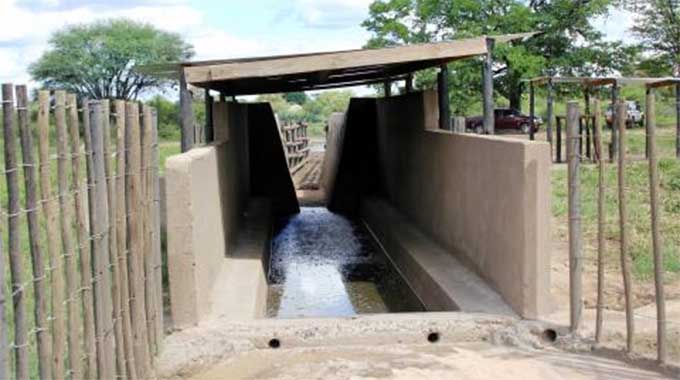Source: Dip tanks rehab steps up | The Herald
Precious Manomano Herald Reporter
Thousands of farmers are set to benefit from the rehabilitation of more than 2 000 dip tanks under a $67 million facility.
The rehabilitation of the dip tanks comes timely on the beginning of the rainy season, when tick borne diseases affect and kill cattle, especially theileriosis commonly known as January disease.
The Department of Veterinary Services chief director, Dr Josphat Nyika yesterday said the distribution of material for the dip tank rehabilitation had already started.
“The rehabilitation of dip tanks is continuing beyond this year, as ultimately about 2 000 dip tanks are earmarked to be rehabilitated. 2022 will see some 100 new dip tanks constructed countrywide from the budget proposals submitted to Treasury,” he said.
He said the tick-borne disease situation in the country has been gradually stabilising in the past four months.
In the past year, January disease accounted for more than 60 percent of all the cases and deaths due to tick borne diseases, with Mashonaland West (especially Mhondoro-Ngezi) Masvingo (especially Gutu district) and Mash East (especially Hwedza district) being the worst affected. Matabeleland provinces have been least affected by tick borne diseases with no January diseases in the two provinces.
Dr Nyika said most provinces have now switched from fortnightly dipping (done during the dry season) to weekly dipping (done during the rainy season) as the tick challenge is expected to rise.
“The country has enough dip chemical in stock for weekly dipping up to the end of the rainy season, but challenges include dilapidated dip tank infrastructure, low cattle turn out of dip tanks and water challenges especially in the southern provinces (Matabeleland North and South, Masvingo, Midlands provinces),” he said.
Dr Nyika said the department is doing awareness campaigns urging farmers to present their cattle.
Mrs Martha Masango of Banket said this is a noble move which will help to protect their cattle from dying from tick borne diseases.
“I am glad to note that rehabilitation of dip tanks is in progress, l hope our cattle will be spared from this deadly disease,” she said.
Mr Aaron Nyamapfeka of Buhera also thanked the Government for the effort to rehabilitate dip tanks saying it will pave a way for a brighter future in terms of farming since they lost most cattle they were using for farming.
“We lost most cattle due to tick borne diseases, so with the rehabilitation of dip tanks, we are going to witness a reduction in the number of cattle dying,” he said.
Older Post
Trial date for Mamombe next year 
COMMENTS
But at pungwes ZANU promised no more dipping, no more contour ridges.